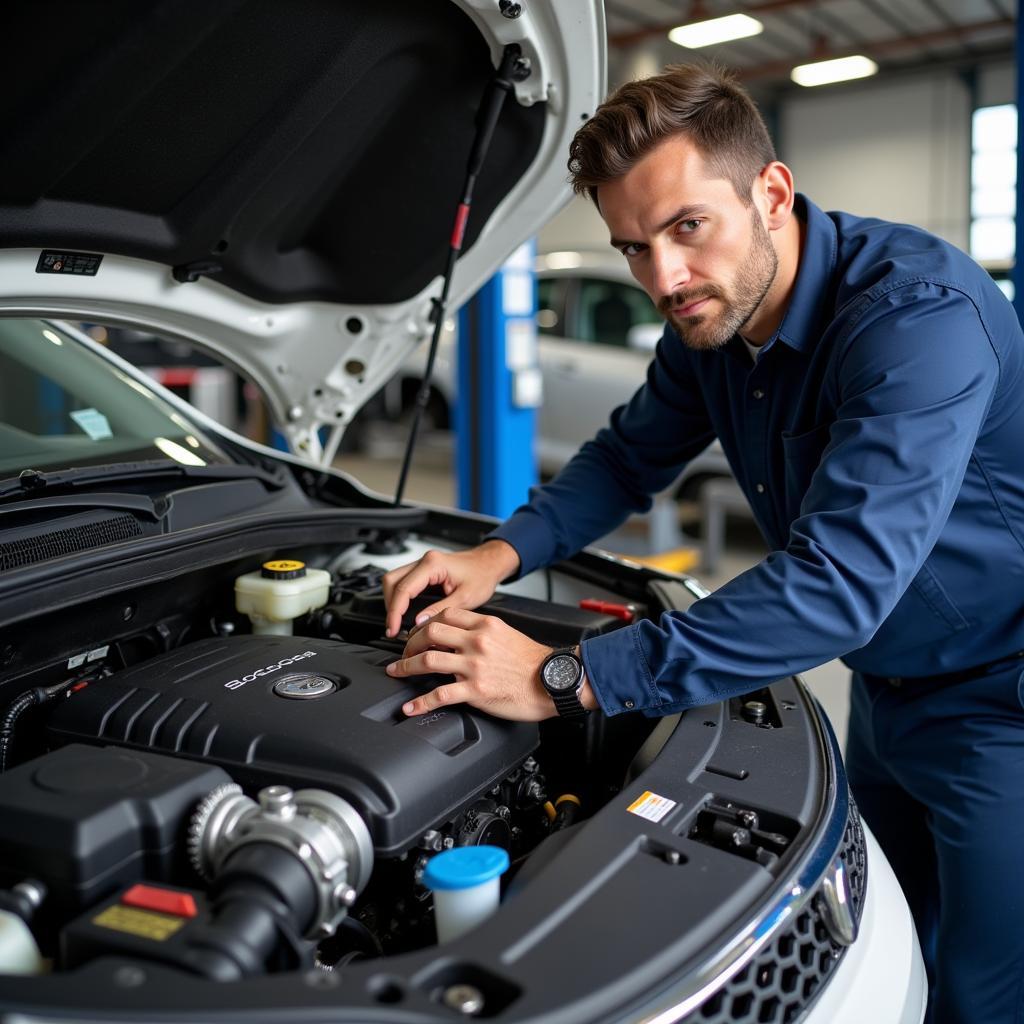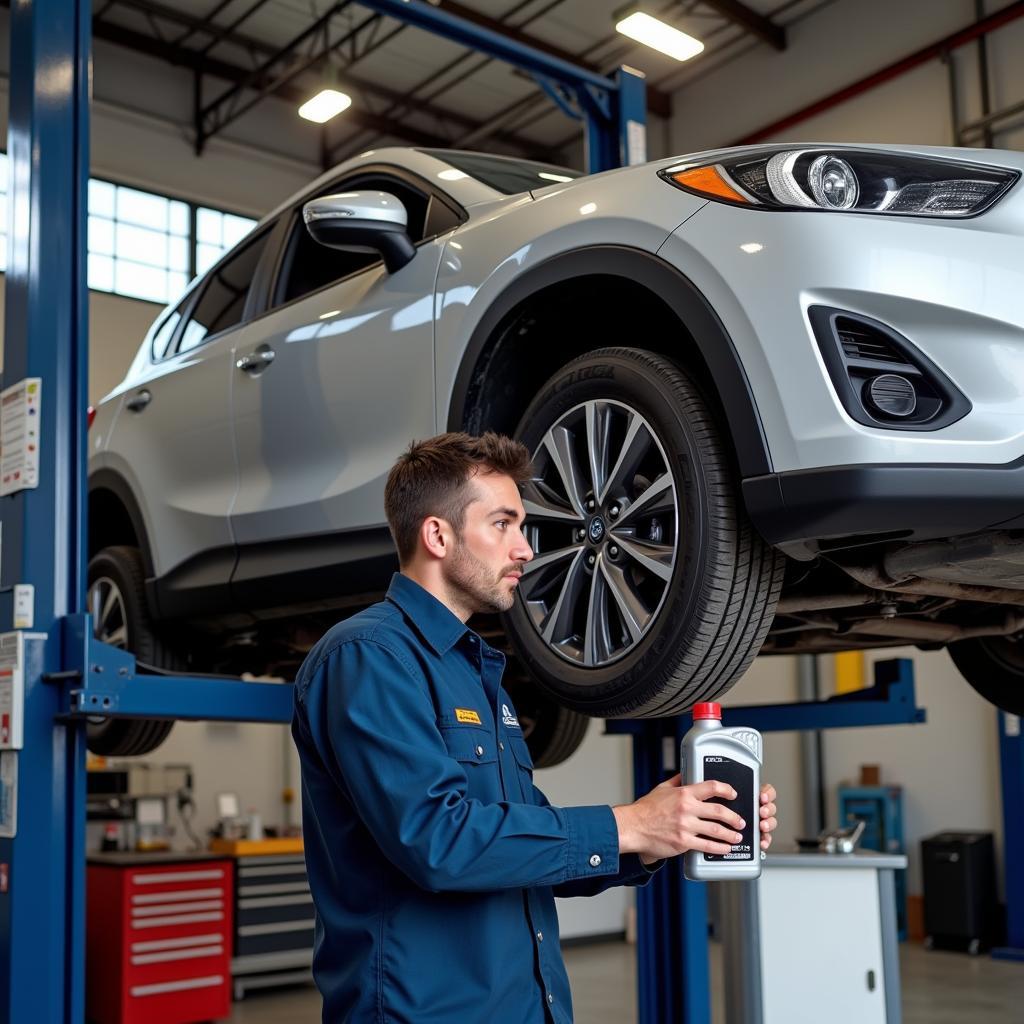Understanding Maintenance Intervals For Cars is crucial for keeping your vehicle running smoothly and avoiding costly repairs down the road. Proper maintenance not only enhances performance but also contributes significantly to safety and the longevity of your vehicle. In this comprehensive guide, we will delve into the intricacies of car maintenance schedules, explore the factors that influence them, and empower you to make informed decisions about your car’s upkeep. What are regular car maintenance can help you answer some basic questions.
Why Maintenance Intervals for Cars Matter
Regular maintenance is like giving your car a health checkup. It allows you to catch minor issues before they escalate into major problems, saving you time, money, and frustration. By adhering to the recommended maintenance intervals for cars, you ensure that vital components, such as the engine, brakes, and suspension, are in optimal condition.
Decoding Your Car’s Maintenance Schedule
Every car comes with a manufacturer-recommended maintenance schedule outlined in the owner’s manual. This schedule specifies the recommended maintenance intervals for cars for various services, such as oil changes, tire rotations, and fluid checks. While these schedules serve as excellent guidelines, it’s essential to adapt them to your specific driving conditions and habits.
Factors Affecting Maintenance Intervals
Several factors can influence how often your car needs maintenance. These include:
- Driving Conditions: Frequent stop-and-go city driving, driving in extreme temperatures, or hauling heavy loads can put extra strain on your vehicle, requiring more frequent maintenance.
- Driving Habits: Aggressive driving, such as rapid acceleration and hard braking, can also accelerate wear and tear.
- Vehicle Age and Mileage: Older vehicles with higher mileage generally require more frequent maintenance.
- Climate: Extreme weather conditions, such as extreme heat or cold, can impact fluid levels and component performance.
Common Maintenance Tasks and Their Intervals
Here’s a breakdown of common maintenance tasks and their typical intervals:
- Oil Changes: Every 3,000-5,000 miles or every 3-6 months.
- Tire Rotation: Every 5,000-7,500 miles.
- Brake Inspection: Every 12,000-15,000 miles.
- Fluid Checks (coolant, brake fluid, power steering fluid): Every 3,000 miles or every 3 months.
- Air Filter Replacement: Every 12,000-15,000 miles or every 12-18 months.
Remember, these are general guidelines. Always refer to your owner’s manual for the specific maintenance intervals for cars recommended by your vehicle’s manufacturer. Regular average maintenance cost of cars provides valuable information about potential costs.
What is the best maintenance plan for cars?
Finding the best maintenance plan for cars involves considering your driving habits, vehicle type, and budget. Combining manufacturer recommendations with personalized adjustments based on your driving conditions ensures optimal vehicle care. Don’t underestimate the importance of a proactive approach to car maintenance.
 Mechanic Inspecting Car Engine
Mechanic Inspecting Car Engine
“Regular maintenance is an investment, not an expense. It saves you money in the long run by preventing major repairs.” – John Smith, Automotive Engineer
How often should I service my Club Car?
For those who own a Club Car, consult the club car maintenance and service manual filetype pdf for specific guidance. This resource provides comprehensive information on maintenance procedures and intervals.
“Preventive maintenance is the key to a long and healthy life for your car.” – Jane Doe, Certified Mechanic
 Car Getting Oil Change
Car Getting Oil Change
How does car maintenance affect fuel costs?
Car maintenence fuel cost can be influenced by various factors. Regular maintenance, such as proper tire inflation and clean air filters, contributes to better fuel efficiency, saving you money at the pump.
Conclusion
Understanding and adhering to the appropriate maintenance intervals for cars is essential for maximizing the life and performance of your vehicle. By following the manufacturer’s recommendations and adjusting them based on your driving conditions and habits, you can ensure that your car remains safe, reliable, and efficient for years to come. For further assistance or personalized advice, don’t hesitate to connect with AutoTipPro at +1 (641) 206-8880 or visit our office at 500 N St Mary’s St, San Antonio, TX 78205, United States. We’re here to help you keep your car in top condition.




Leave a Reply